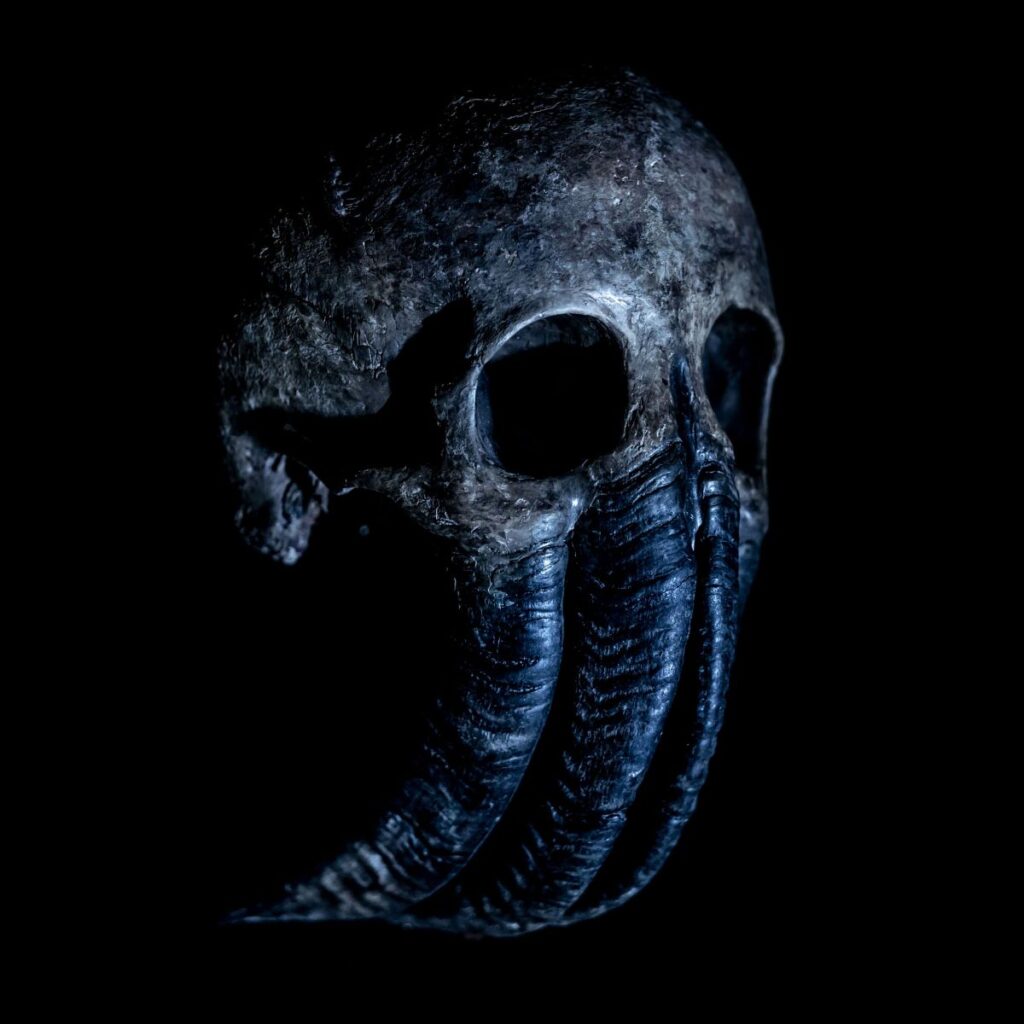
Featuring just five tracks, the much-anticipated debut album from Absent in Body is a slow-motion masterpiece that gathers together members of Amenra, Neurosis and Sepultura to create something truly unique. Initially a concept developed by Amenra’s Mathieu Vandekeckhove (guitars) and Neurosis’ Scott Kelly, the line up soon saw Amenra vocalist Colin H. van Eeckhout joining on vocals and bass and, in an inspired move, Igor Cavalera on drums. The result is a deeply atmospheric album that, while casting various nods in the direction of the bands of its creators, is compellingly different from anything else you’ll hear this year.
The album opens with the tribal invocation of Rise From Ruins. It begins with a hypnotic pulse, legendary drummer Igor Cavalera pummelling the listener as eerie noise floats through the void. As a result, when Mathieu Vandekeckhove’s guitars do detonate, they hit with genuine force. Amidst all this, there’s the split vocals of Scott Kelly (monumental and wearied by the tide of time) and Colin H. van Eeckhout (fractured and Khanate-eque). It’s a devastatingly powerful entrance, and it sets the tone for the rest of the album, systematically reducing the listener to a gibbering wreck in just five little minutes. It’s followed by the queasy industrial of In Spirit In Spite, a mid-tempo piece that lands somewhere between Neurosis and Godflesh. An unexpected digression, the atmosphere of the piece simmers amidst the digitally-enhanced noise as the band achieve a density that threatens to eclipse the sun, only to suddenly strip everything down to its barest essentials, allowing for an eerie, spoken word piece to emerge from the sonic tapestry. It makes for a passage of sublime beauty, albeit an unsettling beauty that carries with it the unavoidable taint of danger, all of which only serves to emphasize the harrowing brutality of the mechanistic Sarin. Built around a guitar riff so distorted, even Al Jourgensen would look twice, Sarin proves to be nihilistic sludge, centred on wind tunnel vocals and cemented by Igor’s propulsive beat. Reminiscent of Sepultura’s loop-driven Lookaway, albeit withered by time and bowed down with care, the track has a compelling groove that is as compelling as it is bludgeoning, and it is well placed at the heart of the album.
Following Sarin is no easy task, and the band adopt a fresh tactic for The Acres The Ache, with Igor’s innovative percussion paving the way. With scuzzy layers of noise creating a sense of looming dread, the introduction to the track draws out the tension until every nerve ending screams at the thought of what’s to come. Eventually the band allow the piece to achieve critical mass, but only after the listener has found themselves rocking in time to the rhythmic pulse, locked into a groove that seems to emanate from somewhere deep within the earth. Even here, however, things are not as straightforward as they seem, and the track’s finale is almost unbelievably beautiful, edging into Mogwai territory (think Come On Die Young), with harmonised vocals and guitars lost in a haze of reverb. The album concludes with The Half Rising Man, a slow burning, deeply emotional finale that remorselessly grinds away at the listener’s resolve, as the band add layer after layer of noise to the metronomic central riff. Owing as much to the sci-fi horror of Brad Fidel’s soundtrack work as to the world of metal, The Half Rising Man is the sound of industrial horror given form and it bleeds the listener white, leaving them drained and yet strangely alive in its wake.
A unique journey, Plague God is a dark masterpiece that exceeds even the lofty expectations its lineage demands. Claustrophobic and yet cathartic, Plague God is a dense, multi-faceted work of art that deserves to be heard in one sitting, preferably with all other distractions silenced. 10/10



